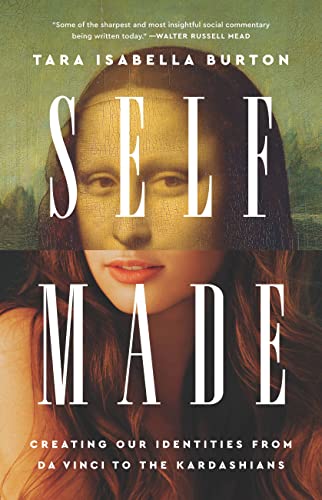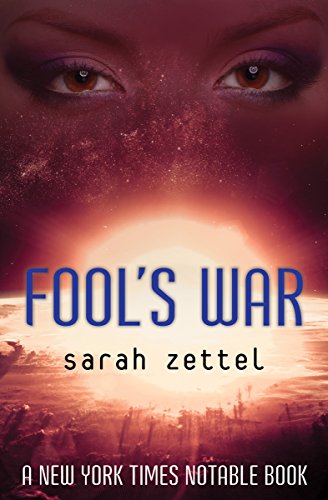Lucy is initially forced to work as a drug mule, where a powerful synthetic drug known as CPH4 is surgically implanted into her abdomen.
However, the bag containing the drug ruptures inside her, releasing a large dose into her system. Instead of killing her, the drug enhances her cognitive abilities and unlocks her brain’s full potential, allowing her to access increasingly higher levels of knowledge, awareness, and control over her own body.
As Lucy’s powers continue to expand, she becomes capable of extraordinary feats such as manipulating time and matter.
She sets out on a mission to seek out a renowned neuroscientist, to help her understand and cope with her rapidly evolving condition.
Lucy always puts me in mind of Limitless and how these two films were received.
Both films share certain similarities in their exploration of human potential and intelligence.
Both films…
- …revolve around characters who gain extraordinary cognitive abilities and experience a transformation as a result.
- …delve into the concept of untapped human potential and the idea that unlocking the full capabilities of the mind can lead to exceptional abilities and heightened intelligence.
- …explore the implications of increased intelligence and the impact it has on the characters’ perception, decision-making, and the way they navigate their respective worlds.
Lucy has a stronger focus on existential and philosophical themes in questioning the nature of consciousness and existence, while Limitless is more focused on ambition, success and the consequences of limitless potential.
Lucy generally getting a mixed reception while Limitless got more of a mixed-to-positive reception. Not a huge difference, I’ll admit, but I feel like if the main character in Lucy would have been a man, the film would have received an even more positive reception in a world where patriarchy dictates the value of gender.
I love Scarlett Johansson’s portrayal of Lucy.
She goes from casual to emotional to losing touch with her humanity beautifully as the story unfolds.
And I remember some criticism about the film not providing more depth and development to the character of Lucy (meaning make her more emotional, if we’re translating to patriarchal standards where women who aren’t emotional are seen as odd) because it would have allowed the audience to connect with her on a deeper level.
The argument was that by exploring her emotional journey alongside her intellectual transformation, the narrative would have felt more grounded and relatable.
But this, to me, feels like it’s not only coming from a patriarchal perspective, but a neurotypical one as well.
I absolutely love how Lucy goes from being very emotional when confronted with dire circumstances, to being in full control of herself as she gains more knowledge and is pushed further away from the very things that make her human.
The unemotional way in which she observes the world, finding patterns and deeper truths while discarding the surface noise, is super relatable to someone like me on the autistic spectrum because that’s how I see the world.
And I often put my foot in my mouth because I say things that in “polite society” are considered to direct or too honest. I don’t have a gun to point in people’s faces to distract them, so I have to live with the humiliation of saying the wrong thing at the wrong time to the wrong person.
What Lucy says to the mafia boss when she finally hunts him down rings very true to me, about learning being a painful process. Most people in daily life seem to be very distracted by the stuff on the surface, while I can seldom muster the interest those things.
“It’s funny, I used to be so concerned with who I was and what I wanted to be, and now that I have access to the furthest reaches of my brain, I see things clearly, and realize that what makes us us, it’s primitive. They’re all obstacles. Does that make any sense? Like this pain you’re experiencing. It’s blocking you from understanding. All you know now is pain. That’s all you know, pain.”
This is also one of those moments in the film when she opens up to the audience, and lets us see what’s happening to her, the robotic, emotionally removed way in which she describes the world is a beautiful juxtaposition to the fundamentally human experience she’s describing.
This comes on the heels of her very emotional phone call with her mother, where she knows that she’s losing her humanity and wants to reach out to the people she loves one more time before it’s completely gone.
Later, she uses a stranger who helped her to still tether herself to her last bits of humanity. The dispassionate kiss that she gives him, is her giving herself a physical touchpoint in the whirlwind of activity in her mind, allowing her to function as a more limited life-form for a little longer.
Being so unemotional with the police captain is also a nice mirror to the earlier men in the film, who only used her and took away her agency. While she does get a kind of revenge on them, such as killing the mafia thugs, she does it in a pragmatic way as she’s pressed for time and has seen that they will not listen to reason, only violence.
Later, as she’s retrieving the remaining packets of drugs, she refrains from killing the thugs who want to fight her. Instead, roping in the police captain to protect her, though he remains sceptical the whole time and isn’t convinced he should even be doing it.
Lucy explores several big thematic elements.
Starting with this quip of “the average person uses 10% of their brain capacity, imagine what she could do with 100%”, in addition to letting us know it’s not going to be a super serious movie, it sets up the question of human potential and evolution.
Stating that the human mind possesses untapped capabilities beyond our current understanding, the film suggests that unlocking this potential could lead to extraordinary abilities and transformation.
Through the character of Lucy, the narrative raises questions about the limitations of human consciousness and the possibilities that lie beyond those limits.
As Lucy’s mind expands, she becomes a symbol of the potential that exists within each individual, challenging us to consider the boundaries of our own intellectual capacities.
The film delves into the nature of knowledge and intelligence, emphasising the power that comes with gaining access to vast amounts of information and understanding.
As Lucy’s brain capacity increases, she becomes a conduit for immense knowledge and experiences a heightened level of intelligence – losing the very thing that makes her human in the process, eventually transforming into a machine symbolising just how far removed she has become from her humanity.
This exploration prompts us to contemplate the implications of acquiring such knowledge and the potential impact it can have on your perception of the world. The film suggests that increased intelligence may lead to a reevaluation of reality, challenging preconceived notions and broadening your understanding of existence.
Lucy also touches upon philosophical questions related to consciousness and existence, raising ideas about self-awareness, the nature of reality, and the perception of time.
Through Lucy’s journey, the film explores the notion that human consciousness is a complex and ever-evolving phenomenon. It prompts viewers to ponder the subjective nature of reality and the extent to which our perception shapes our understanding of the world.
The exploration of consciousness in the film invites existential inquiries, encouraging contemplation of the human experience and our place within the universe.
Stating early on that the purpose of cells, through evolution, has become to move through time in one way or another (immortality or reproduction), urges us to the consider the qualitative passing of that time – i.e. how do we want to move through life?
As Lucy’s mind expands, she undergoes a transformative journey, seeking greater understanding and a higher state of being. Reaching a state of transcendence involves surpassing the limitations of the physical world and accessing a realm of heightened consciousness.
Lucy’s progression to the full capacity of her brain symbolises a quest for ultimate knowledge and a desire to transcend the constraints of ordinary human existence, while also raising questions about free will.
As Lucy’s transformation progresses, her actions and decisions may be seen as the result of the cause-and-effect chain set in motion by the drug she ingested, yet she chooses to take action and find purpose. The film invites contemplation on the balance between determinism and free will and the interplay between personal agency and external influences.
Lucy is a sci-fi cocktail that packs a punch, both visually and cerebrally.
It’s an ambitious concept that got a lot of criticism for falling short in adhering to established science and being too cerebral.
But when has fiction ever been about maintaining real-world integrity?
If anything, fiction is precisely the place to bend the rules.
Now, I know, I know, there are some narrative… shall we say, conveniences, but that’s just to make the plot work, and I’m fine with it being the fast and flashy movie that it is because it’s really entertaining because while it’s outrageously preposterous, it still retains a sense of fun.
So long as you don’t take this Euro-thriller too seriously, it’s very stylish for an action movie, and still manages to be thought provoking.
I see a lot of Taxi and Fifth Element in it, which I love.



